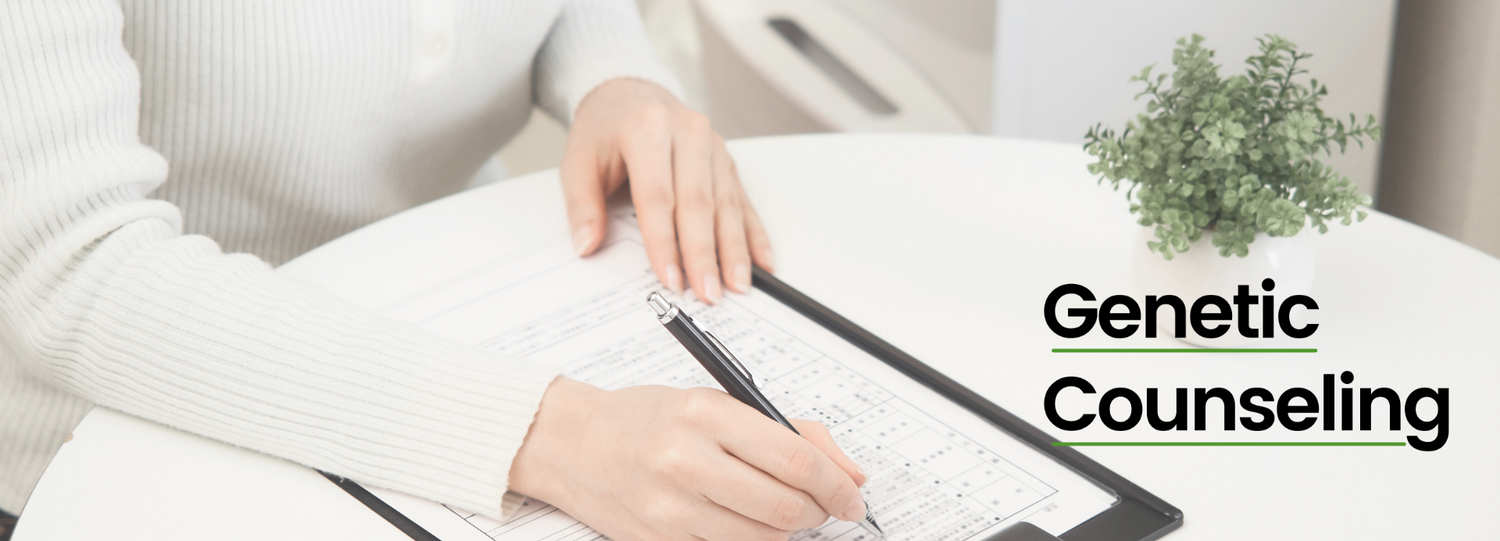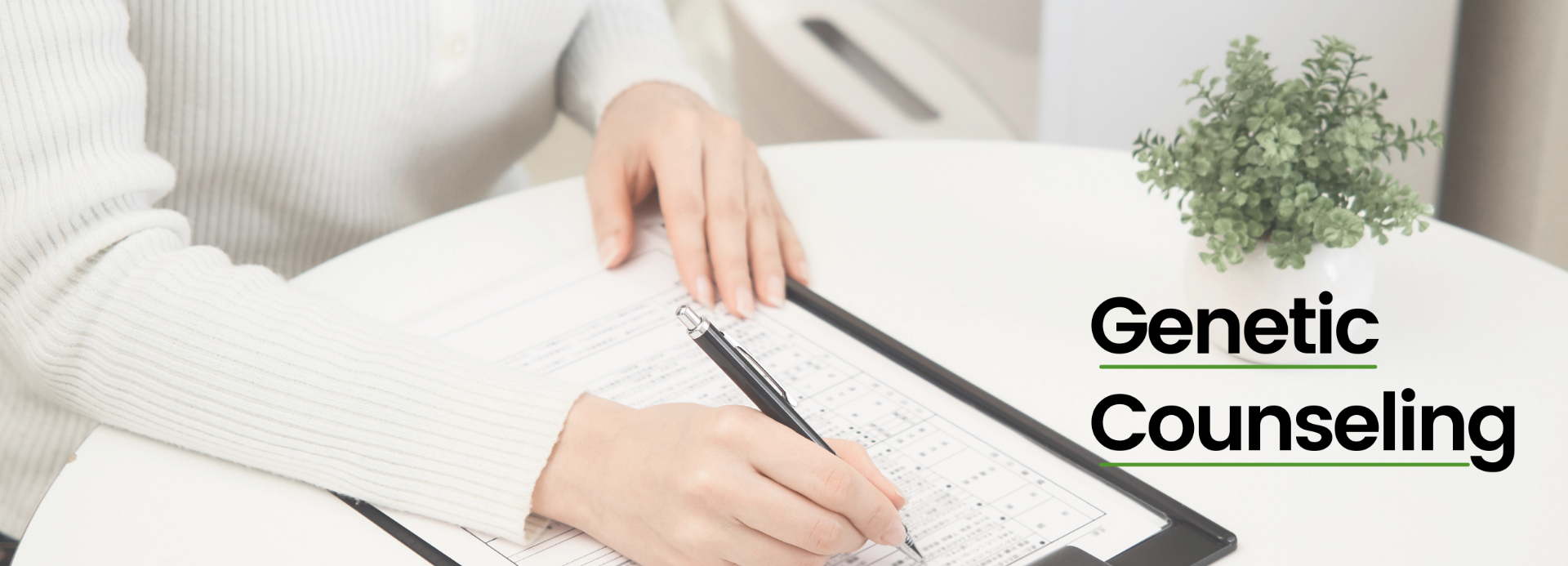What Is Genetic Counseling and Why Should You Care?
Have you ever wondered why certain diseases seem to "run in the family"? Or maybe you've considered taking a DNA health test but felt unsure about what to do with the results. That’s where genetic counseling steps in — your personal guide to understanding your DNA, health risks, and smarter health choices for you and your family.
In this guide, we’ll break down everything you need to know about genetic counseling — in simple language. Whether you’re planning a family, managing a health condition, or just curious about your genetic risk assessment, this article is for you.
What Is Genetic Counseling?
Genetic counseling is a process where trained professionals (genetic counselors) help you understand your genetic information. This includes:
-
Explaining results of a DNA health test
-
Identifying inherited conditions that may affect you or your children
-
Helping you make informed medical and lifestyle decisions
It's not just about diseases — it’s about personalized health guidance based on your genes.
How Does Genetic Counseling Work?
Here’s how the process usually looks:
Step 1 – Collection of Personal and Family Health History
The counselor will ask about your:
-
Medical history
-
Family’s history of genetic conditions
-
Pregnancy history (if applicable)
Step 2 – Genetic Risk Assessment
Based on your information, they assess whether you're at risk for any inherited conditions. This is often where the term genetic risk assessment comes in.
Step 3 – DNA Health Test (If Needed)
If necessary, they’ll suggest a DNA health test, like:
Step 4 – Interpreting the Results
This is where the counselor explains the results in simple terms. You’ll learn:
-
What the results mean
-
How they affect your health
-
What steps you can take next
Who Should Consider Genetic Counseling?
You Might Benefit from Genetic Counseling If You:
-
Have a family history of cancer, heart disease, or other inherited conditions
-
Are planning to have a baby and want to check for inherited risks
-
Had multiple miscarriages or infertility issues
-
Belong to a high-risk ethnic group for certain diseases
-
Have abnormal results from a prenatal or newborn screening test
-
Have taken a direct-to-consumer DNA health test and want expert interpretation
Genetic counseling is not just for sick people—it’s for anyone who wants to be proactive about their health.
Why Is Genetic Counseling Important?
1. Personalized Health Insights
Genetic counselors help translate complex DNA data into clear, actionable steps. This can guide your doctor in customizing your care.
2. Early Detection = Better Prevention
Knowing your risk early helps you:
-
Start screening sooner
-
Make lifestyle changes
-
Catch diseases early when they’re easier to treat
3. Smarter Family Planning
If you or your partner carry genes for inherited conditions, counseling can help you understand your options.
4. Mental and Emotional Clarity
Understanding your genetic risks can actually reduce anxiety — especially when you know what you can do about them.
How Is Genetic Counseling Different from a DNA Test?
| Genetic Counseling | DNA Health Test |
|---|---|
| Involves a trained counselor | Lab-based genetic analysis |
| Helps interpret results | Provides raw genetic data |
| Gives emotional support | Technical output |
| Actionable guidance | Needs expert interpretation |
Think of the DNA health test as the “what,” and genetic counseling as the “so what?”
Real-Life Examples Where Genetic Counseling Helped
Case 1 – Cancer Prevention
Priya, age 35, has a family history of breast cancer. A genetic counselor recommended BRCA gene testing. Results showed she carried a mutation, and she began early screening. Her doctor detected cancer at Stage 1 — fully treatable.
Case 2 – Family Planning
Ravi and Anjali wanted to have a baby. Genetic counseling revealed both were carriers for a rare metabolic disorder. They used IVF with genetic screening to ensure a healthy pregnancy.
These stories highlight how genetic risk assessment can save lives and bring peace of mind.
What to Ask Your Genetic Counselor
Not sure what to ask? Here are a few suggestions:
-
What kind of genetic tests do I need, if any?
-
What are the risks of passing on a condition to my children?
-
How do I explain this to my family?
-
How can I reduce my genetic risk?
The goal is to get answers that empower you — not overwhelm you.
Cost of Genetic Counseling and DNA Tests
How Much Does It Cost?
-
Genetic counseling session: ₹3000
-
DNA health test: ₹5,000 – ₹50,000 depending on the type
Is It Covered by Insurance?
In India, coverage is still limited. Some premium plans or corporate wellness programs may offer partial reimbursements. Always check with your provider.
Pros and Cons of Genetic Counseling
| Pros | Cons |
|---|---|
| Personalized health insights | May raise anxiety for some people |
| Helps detect issues early | Cost may be a barrier |
| Supports better decisions | Not all results are conclusive |
| Empowers families with options |
Final Thoughts
Genetic counseling is like a flashlight for your health journey — it helps you see what’s ahead so you can walk smarter. Whether you're planning a family, managing a condition, or just want to know more about your DNA, this service can be life-changing.
With the rise in awareness, accessibility, and advanced DNA health tests, there's no better time to invest in a genetic risk assessment.
FAQs: The Ultimate Guide to Understanding Genetic Counseling
Q1: Do I need a doctor’s referral for genetic counseling?
Not always. Many services accept self-referrals, especially if you’ve taken a DNA health test already.
Q2: Is genetic counseling the same as genetic testing?
No. Genetic counseling helps you understand and make decisions about genetic testing. It complements the test but isn’t the test itself.
Q3: Can genetic counseling help with mental health conditions?
Yes. Some psychiatric disorders have a genetic link, and counseling can offer insight and family guidance.
Q4: How long does a session last?
Typically, 30 to 60 minutes. Follow-ups may be shorter.
Q5: Can my whole family benefit from it?
Yes. If a condition runs in the family, genetic counselors often recommend testing and counseling for close relatives too.







